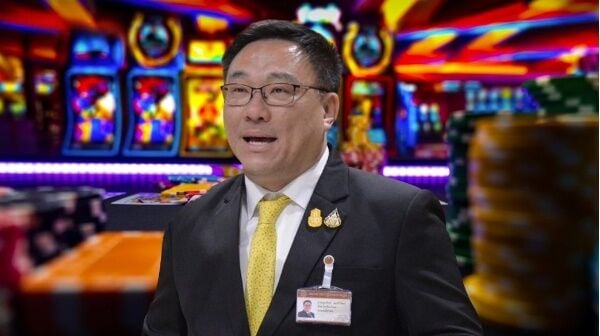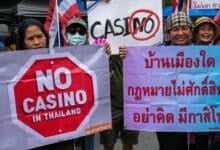Thailand’s big gamble: Mega casinos set to hit the jackpot

Deputy Finance Minister Julapun Amornvivat announced that Thailand is on the brink of legalising large-scale entertainment complexes with casinos. The final draft of this ambitious bill is set to be ready for Cabinet deliberations within the next three to four weeks.
Julapun revealed that 16 government agencies have already weighed in on the plan.
“Their insights will be included as supplementary documents attached to the draft.”
The initial bill, crafted by a special House committee dedicated to the project, will be refined based on these inputs.
The economic benefits of such entertainment complexes are clear, with unanimous agreement among the agencies that they could significantly boost Thailand’s economy. Julapun highlighted that the project could attract investments ranging from 30 billion to 50 billion baht.
“The casinos will occupy no more than 5% of the space within these complexes, which will also feature hotels and a variety of entertainment facilities.”
However, the social impact of gambling has prompted several agencies to recommend protective measures.
“Mechanisms will be proposed to shield society from the potential negative effects of gambling.”
The bill, once approved by the Cabinet, will be sent to the Office of the Council of State for vetting before being presented to the House of Representatives. To oversee the project, a national committee with representatives from various agencies will be established, reported The Nation.
ORIGINAL STORY: Thai PM says legal casinos will prevent illegal gambling
Thai Prime Minister, Srettha Thavisin, has come out in support of legalising casinos in the country, stating that the move would allow the government to properly control gambling and allow them to “collect taxes properly”.
Under current law, gambling in the country is prohibited, except on state lotteries and government-backed horse races. Although online gambling is not explicitly covered by law, it is considered to fall under the general gambling guidelines. As such, there are no legal casinos or other legal gambling venues, so many players in Thailand turn to offshore betting sites, like those listed here for Thai players. Nick Pappas explains that although online gambling is prohibited in Thailand, players can use international offshore betting sites to place their wagers and play games without issue.
Thailand has strict gambling laws, which date back to the Gambling Act 1935. Under the current laws, it is illegal for any property to hold more than 120 playing cards and illegal in-person gambling dens are regularly raided. PM Srettha and many within the government hope that legalising casinos will not only help reduce illegal gambling establishments but will enable them to tax organisations that offer gambling, potentially raising substantial public funds.
The Government House has previously held talks regarding the legalization of gambling, pointing to the possibility of boosting tourism while also helping to curb illegal gambling activities. The idea of limiting casinos to foreign visitors has been mooted, along with a system similar to the one in China. Macau is the only area in China where gambling is legal: a situation that has been in place since Macau was a Portuguese colony in the 19th Century.
A recent study by the Thai Government House Committee on casino legalisation was completed at the beginning of March. It proposes the introduction of entertainment complexes, which would incorporate casinos, but they would only make up a small part of the facilities.
The report went on to say that while the government would decide on the locations of these complexes, issue licenses, and be responsible for the collection of taxes, it would be down to the operators to raise the necessary funding. Complexes would not be allowed to be built next to Phuket. There has been no limit suggested on the number of complexes that would be licensed but the report suggests that they should be within 100 kilometres of an airport and within a main tourist area.
It has been suggested that establishing new casinos would bring up to 50,000 new jobs, assuming that one complex would be built in each of the country’s five regions, with each employing 10,000 people.
PM Srettha has cautioned that any new laws allowing the legal introduction of casinos would take time to pass and formalise and that the government would continue to crack down on illegal gambling dens in the country in the meantime.
Although no decision has been finalised yet, the proposals seem to be gathering a lot of support from business owners, and having the backing of the PM, who is also the country’s finance minister, makes the move seem a real possibility.
Latest Thailand News
Follow The Thaiger on Google News:


























